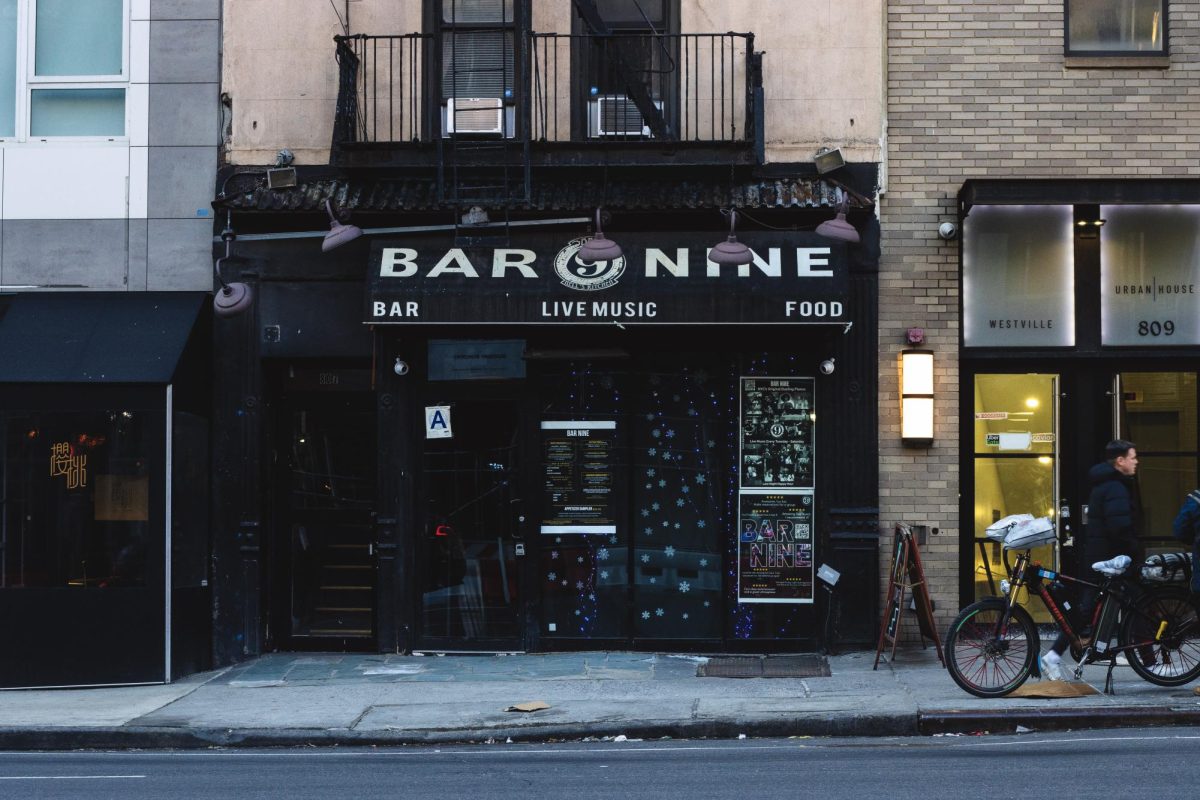College students are spending their healthiest years actively increasing their risk of developing cancer because of their consumption of alcohol.
Every Friday night, many Fordham University students relish in the freedom brought by the weekend in an activity commonly known as “going out.” As Fordham does not have Greek life, many students turn to bars and clubs as their preferred venues to occupy on nights out.
However, no matter what specific location these students turn to, many of their escapades are fueled by alcohol, the most socially acceptable drug. Alcohol is a substance whose relationship with health has been misconstrued and misunderstood in various different ways over the years.
The discussion of alcohol’s impact on health has recently surged back into the limelight as a result of a somewhat sensational and uncommon advisory published by the surgeon general this past January. This advisory made headlines recently because of the alarming nature of its message. The statement warned the public of the increased risk of developing a myriad of different cancers as a result of alcohol consumption.
Specifically, the advisory warns that alcohol represents a leading cause of “nearly 100,000 cancer cases and about 20,000 cancer deaths each year” in the United States alone. This alarming data comes after long standing claims that certain types of alcohol like red wine actually improve overall health by seemingly offering a protective effect against heart disease. So, which is it?
First, it is important to understand exactly how red wine is purported to improve health. CNN recently highlighted a study of the Mediterranean diet indicating that people who were at risk for heart disease and over the age of 60 reduced their risk of a cardiovascular event by 50%. The study focused on the small glass of red wine that is typically consumed with dinner as a part of the Mediterranean diet, but CNN referenced expert opinions that questioned the methodology of the study overall.
The advisory warns that alcohol represents a leading cause of “nearly 100,000 cancer cases and about 20,000 cancer deaths each year” in the United States alone.
At first, the study seems to indicate that there may well be some sense in consuming alcohol in moderation. However, not only does that same study also state that the protective effects of the wine vanish when you consume any greater amount, but it also has received criticism for dubious methodology, much like other studies.
In fact, no study has shown that the protective effects observed in these instances are actually directly linked to red wine. Rather, the relationship is strictly one of correlation, not causation.
As for the connection between alcohol consumption and cancer, the consensus is much more well supported. The surgeon general’s advisory cites over 61 sources to support its claim, but it is important to note that the claim that alcohol causes cancer is not new. The advisory details how the first studies implicating alcohol in cancer diagnoses occurred in the late 1980s. So, if this knowledge is not new, why is the surgeon general distributing this advisory?
Historically, the office of the surgeon general has used advisories to make the public aware of significant issues that may directly impact their health and well being. This particular focus on alcohol is important because it is remarkably similar to the warning issued on products containing nicotine and tobacco.
The advice of the surgeon general in regards to substances with nicotine and tobacco is a large part of why we consider these substances to be less socially acceptable than alcohol. After all, it wasn’t that long ago that smoking indoors was still the norm.
As such, the surgeon general issuing this advisory now means that the evidence to support it is likely overwhelming, and that the subject matter likely poses a serious threat to the well-being of many U.S. citizens.
Despite all of this historical context, the connection between alcohol and cancer risk is particularly significant to college students because of the quantity of alcohol they consume, and the manner in which they consume it.
The surgeon general’s advisory states that consuming as little as one standard drink per week can lead to almost a 20% chance of developing certain types of cancer. Studies have shown that college attendance is correlated with higher rates of heavy drinking, meaning that in the most objective sense, college students are at greater risk for cancer than their non-enrolled peers.
Furthermore, the overall lifestyle of college students puts them at a higher risk for developing cancer even without egregious consumption of alcohol. Things like stress and the abuse of other recreational or prescription drugs all play a role in negatively impacting overall health, which in turn exacerbates the risk of long term damaging effects.
Despite the risks involved, many college students actually view alcohol as a coping mechanism for stress, and see their unhealthy habit as a reward after a long week of classes. This could not be further from the truth. In fact, alcohol is associated with increased anxiety, dehydration and reduced capacity to effectively manage stress. In short, the purported benefits of alcohol are likely negligible, while the list of negative impacts seems to grow on a daily basis.
The surgeon general’s advisory states that consuming as little as one standard drink per week can lead to almost a 20% chance of developing certain types of cancer.
With this in mind, the normalization of binge and excessive drinking habits that are already unhealthy, even when not considering their ability to cause cancer becomes that much more alarming.
Cancer is one of the leading causes of death in the United States, and although genetics and environmental factors are implicated, it is also known that lifestyle plays a significant role in determining whether or not an individual will develop cancer.
Although only 20,000 deaths are currently thought to be directly attributable to alcohol today, there’s no telling how that number might change in the future. Do not allow the commercialization of drug usage to distract you from the fact that “going out” is not worth your life.
Even though refraining from alcohol consumption may seem like it isn’t normal, don’t forget that less than half of all college students consume alcohol on a regular basis. That means that choosing what is likely best for you and your health actually means you’ll be making the same choice as the majority of your peers.


